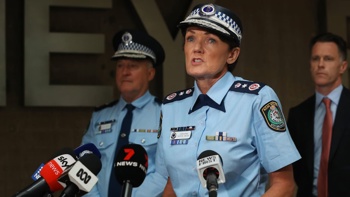
Deliberately spreading fake news should be a crime, according to two out of three New Zealanders surveyed - while three quarters think it should be illegal to create a fake profile online.
And 60 per cent think there should be a nationwide filter keeping illegal content out of New Zealand, while 66 per cent think resources for fighting cyber crime should be doubled.
New research from Netsafe found a crackdown on poor online behaviour is backed by a majority of Kiwis, and most of us think the internet is getting more dangerous.
But we're still confused about what is and isn't legal online.
Did you know it's illegal to "out" someone's sexuality online without their permission? Or to download an app on your partner's phone without their knowledge in order to track them?
Neither did a majority of those surveyed, despite those actions being made offences under the Harmful Digital Communications Act which was passed six years ago.
A surprising 16 per cent of people think it's already illegal to deliberately post fake news just to see who falls for it, while 29 per cent think it's illegal to create a fake online profile. Both are legal.
The survey of 808 people was carried out by Colmar Brunton, with the results released to mark the first Netsafety Week.
Netsafe chief executive Martin Cocker said he was "totally surprised" that people thought sharing fake news or creating fake accounts were illegal - given how much harmful fake news is already swirling around online with no consequences for the poster.
"Fake news is hardly even defined, let alone defined in legislation," he said. That's backed up by a 2020 Netsafe survey that found many of us classify fake news as anything we disagree with.
"This comes down to people just losing faith. So much of the trouble that you see online is caused by people not being authentic, not presenting themselves as who they are. Making that into an offence and forcing everybody to be their real selves online would make a big difference."
But such a law would be impossible to enforce - and would make offenders out of people who had legitimate reasons to have secret online lives, he said.

Netsafe chief executive Martin Cocker is surprised by new survey results showing people think it's illegal to share fake news. Photo / Supplied
While many Kiwis want to see a crackdown on bad behaviour online, a surprising number oppose any regulation, even of harmful actions.
Around one in four think it should be legal to "out" someone online or post grossly offensive content, while one in 10 think it should be legal to post threatening messages, harass or stalk someone online.
Seven per cent think it should be legal to encourage someone to commit suicide, according to the survey.
Cocker said the findings reflected "a strong underbelly, a small percentage of the population who believe the internet should be subject to an extreme free speech regime".
"Most people wouldn't think those things are positive contributions to society but they believe outlawing them is too much of a price to pay."
Nearly half of us think it's illegal to share someone's personal details (eg phone number) without permission (it's not).
There's also confusion around sharing of intimate images or recordings - with one in four people believing it's illegal to consensually share or post nudes (it's not, if you have consent).
On the other hand, one in three people thinks it's legal to share nudes of someone else without permission. In fact it's an offence under the Act, although to reach the threshold for criminal prosecution the victim must be able to prove the offender meant to cause harm. A bill currently before select committee would amend the Act to make it explicitly illegal to post intimate images and recordings without consent, and punishable by up to three years in prison.
The Netsafe survey aimed to take a "pulse" of how people were feeling about the online - and it seems we're pessimists. Two thirds of people believed the internet had become more dangerous in the past five years, and half believed it would be even worse in five years' time.
Cocker agreed with that trend but was a little more optimistic about the future.
Industry tools were improving, and less harm was occurring on platforms like Facebook and YouTube, he said. There were also policy and technological initiatives that gave him some hope - such as the increasing sophistication of artificial intelligence that could verify a person's age, and a review of New Zealand's media regulatory system which was announced last month.
Netsafety Week: Top five online safety tips from Netsafe
- Korero with whānau - regular, non-judgmental conversations help minimise the harm if things go wrong
- Be a good digital citizen - think twice before you engage online and be respectful of others and our differences
- Swipe left on fake news - Do you trust the source? Can you fact-check it? Report fake news, don't share it
- Discuss sensitive topics - There's a myth that all young people are sharing nudes, which puts extra pressure on them to join in. Have open conversations and know where to get help if something is shared without your consent
- Know your rights under the Harmful Digital Communications Act- Netsafe can help you if things go wrong
Looking for support? It's available
- Call or text 1737 any time for support from a trained counsellor
- Call PlunketLine 24/7 on 0800 933 922
- Depression helpline: Freephone 0800 111 757
- Healthline: 0800 611 116 (available 24 hours, 7 days a week and free to callers throughout New Zealand, including from a mobile phone)
- Lifeline: 0800 543 35
- Samaritans: 0800 726 666
Take your Radio, Podcasts and Music with you









